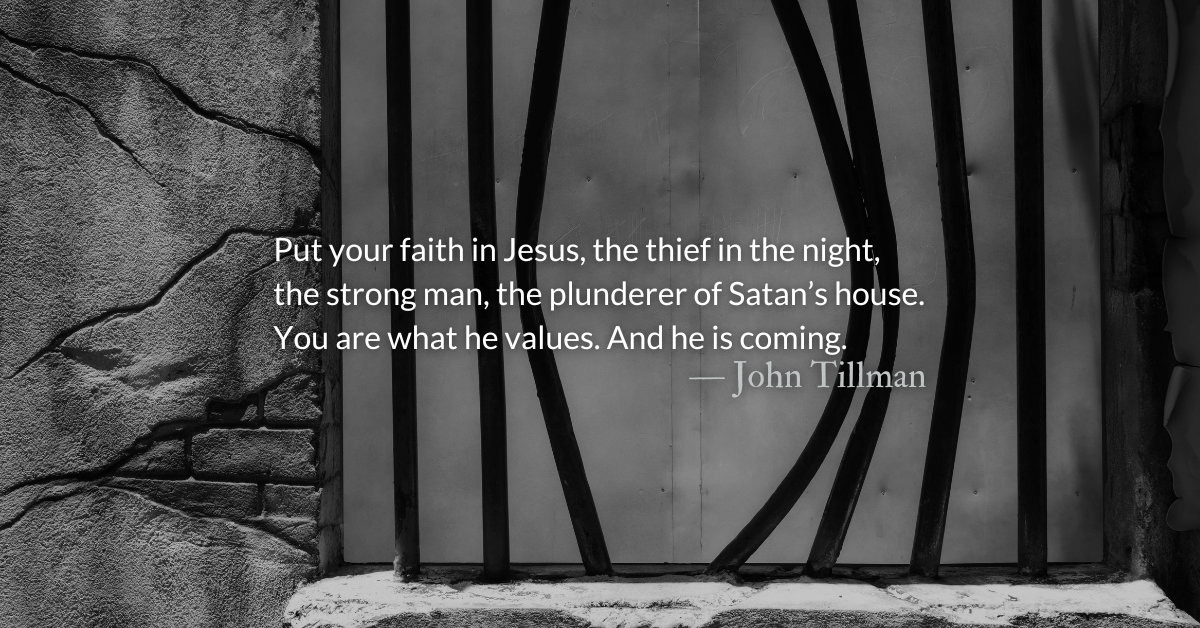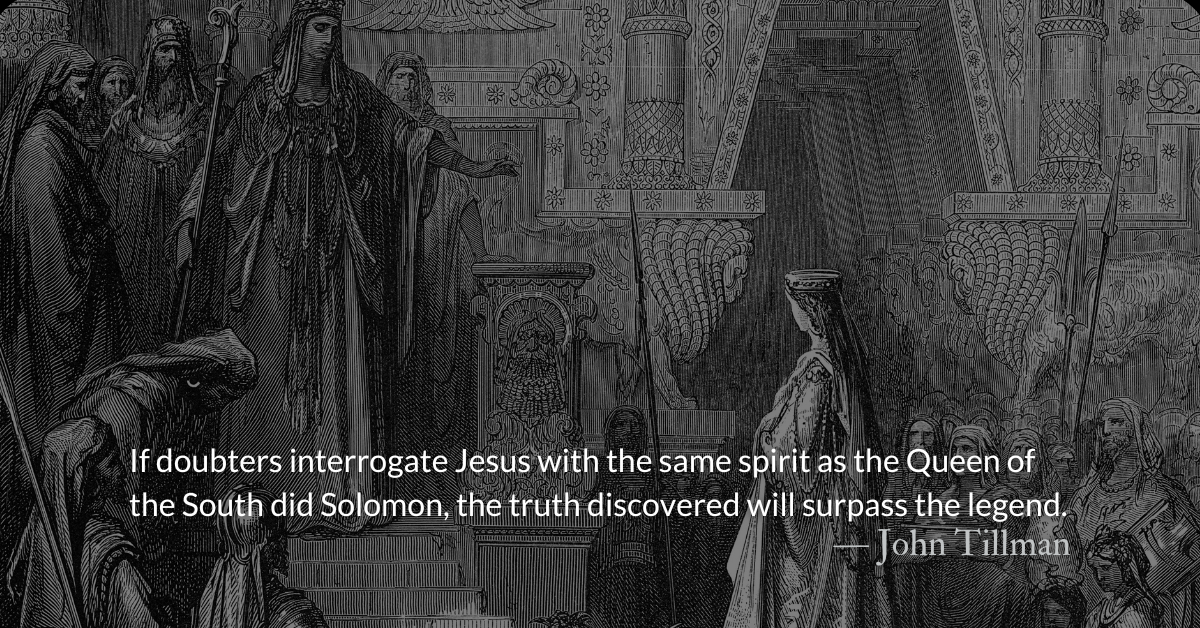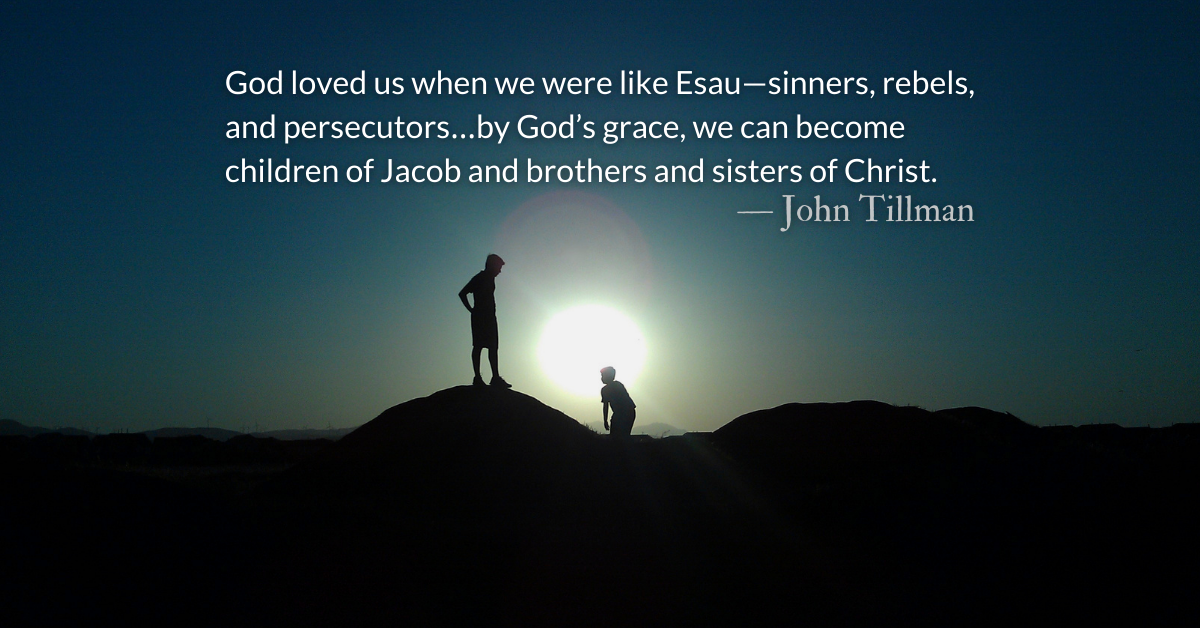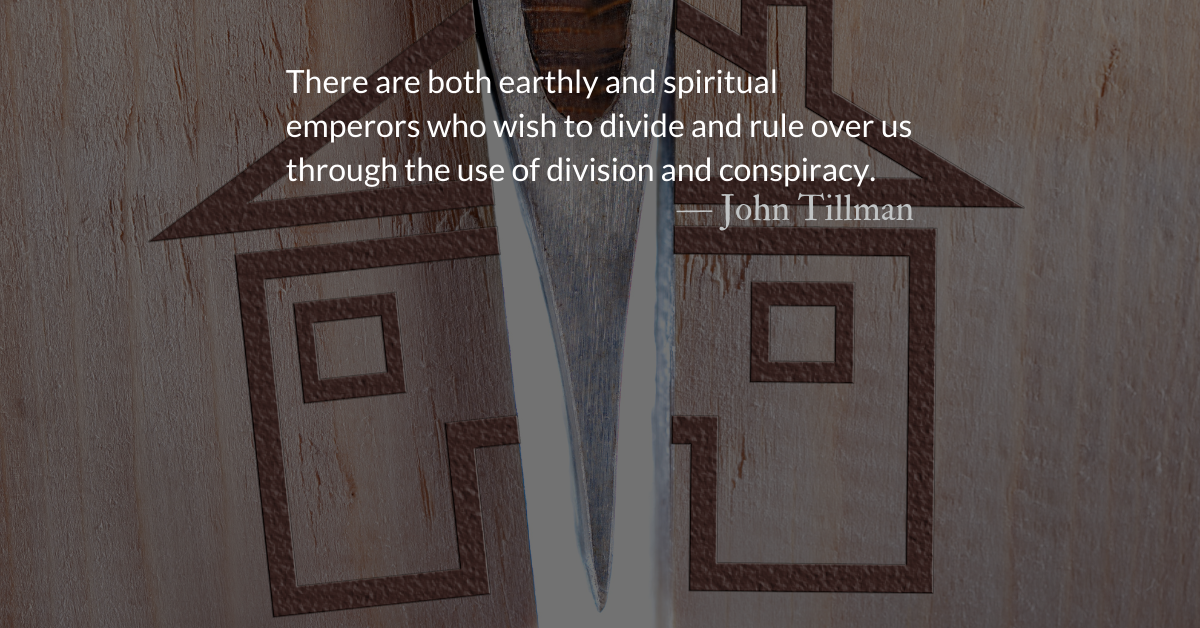Scripture Focus: Matthew 12.22-29
22 Then they brought him a demon-possessed man who was blind and mute, and Jesus healed him, so that he could both talk and see. 23 All the people were astonished and said, “Could this be the Son of David?”
24 But when the Pharisees heard this, they said, “It is only by Beelzebul, the prince of demons, that this fellow drives out demons.”
25 Jesus knew their thoughts and said to them, “Every kingdom divided against itself will be ruined, and every city or household divided against itself will not stand. 26 If Satan drives out Satan, he is divided against himself. How then can his kingdom stand? 27 And if I drive out demons by Beelzebul, by whom do your people drive them out? So then, they will be your judges. 28 But if it is by the Spirit of God that I drive out demons, then the kingdom of God has come upon you.
29 “Or again, how can anyone enter a strong man’s house and carry off his possessions unless he first ties up the strong man? Then he can plunder his house.
Reflection: The Gospel Heist
By John Tillman
The Pharisees accused Jesus of bargaining with Satan to defeat demons, but Jesus didn’t make deals with the devil or pay him bribes or ransoms. Jesus described his actions as a robbery.
It’s hard to beat a good heist story.
Heists begin with something of value worth stealing. Most of the time, the villain, not the rightful owner, holds the valued item. The villain gained it by theft, manipulation, or violence and guards it with all their power.
A mastermind plans the crime and leads a team to carry it out. There may be a hacker to overcome computer systems, a grifter using false identities to manipulate the outcome, a thief who enters in an unexpected, concealed way to remove the item, and a hitter, a martial arts expert who incapacitates guards who stand in the way.
I just described the team from the heist television series, Leverage, but other heist tales have similar characters and plots. The Leverage team steals from corporate raiders. Ethan Hunt steals a confidential file to prove his innocence and save lives. Bryan Mills takes back his taken daughter. A good heist restores freedom or justice. The gospel is a heist which restores both.
Satan conned humanity and holds us captive. In varying degrees of severity, we both suffer under and participate in his ruthless rule of manipulation, theft, and violence.
In eternity past, God, the mastermind, set in motion a heist. Jesus entered in an unexpected way. He hacked the corrupt system. Then, he was captured. Beaten. Crucified. Dead.
There’s always a moment in a heist when the villain thinks he has won. The hero seems trapped. The plan appears to have failed. This is the turning point in the heist, when the truth is revealed and the villain’s fate sealed. The cross is that moment. What looks like a loss, is actually the moment of victory. That’s when Jesus kicks down the door, ties up the guards, and sets the captives free.
The demonically afflicted man Jesus healed had lost hearing and speech. What have you lost? What has sin taken? What traps you? Are you blind, deaf, or dumb? Lame, leprous, or lifeless? Put your faith in Jesus, the thief in the night, the strong man, the plunderer of Satan’s house. You are what he values. And he is coming. Jesus comes to steal you back and set you free.
Divine Hours Prayer: A Reading
Then he went into the Temple and began driving out those who were busy trading, saying to them, “According to scripture, ‘my house shall be a house of prayer’ but you have turned it into ‘a bandit’s den.’” — Luke 19.45-46
– From The Divine Hours: Prayers for Summertime by Phyllis Tickle.
Today’s Readings
Hosea 9 (Listen 2:52)
Matthew 12 (Listen 6:41)
Read more about Why The Cross?
Every good thing before the cross pointed to it. Every good thing after the cross is evidence of the power broken on it.
Read more about Christ, Our Undeserved Friend
My sin he grasped with nail-pierced grip
Dragged sin to hell, and there left it…
With death defeated, he grasped me,
That I should live eternally.











